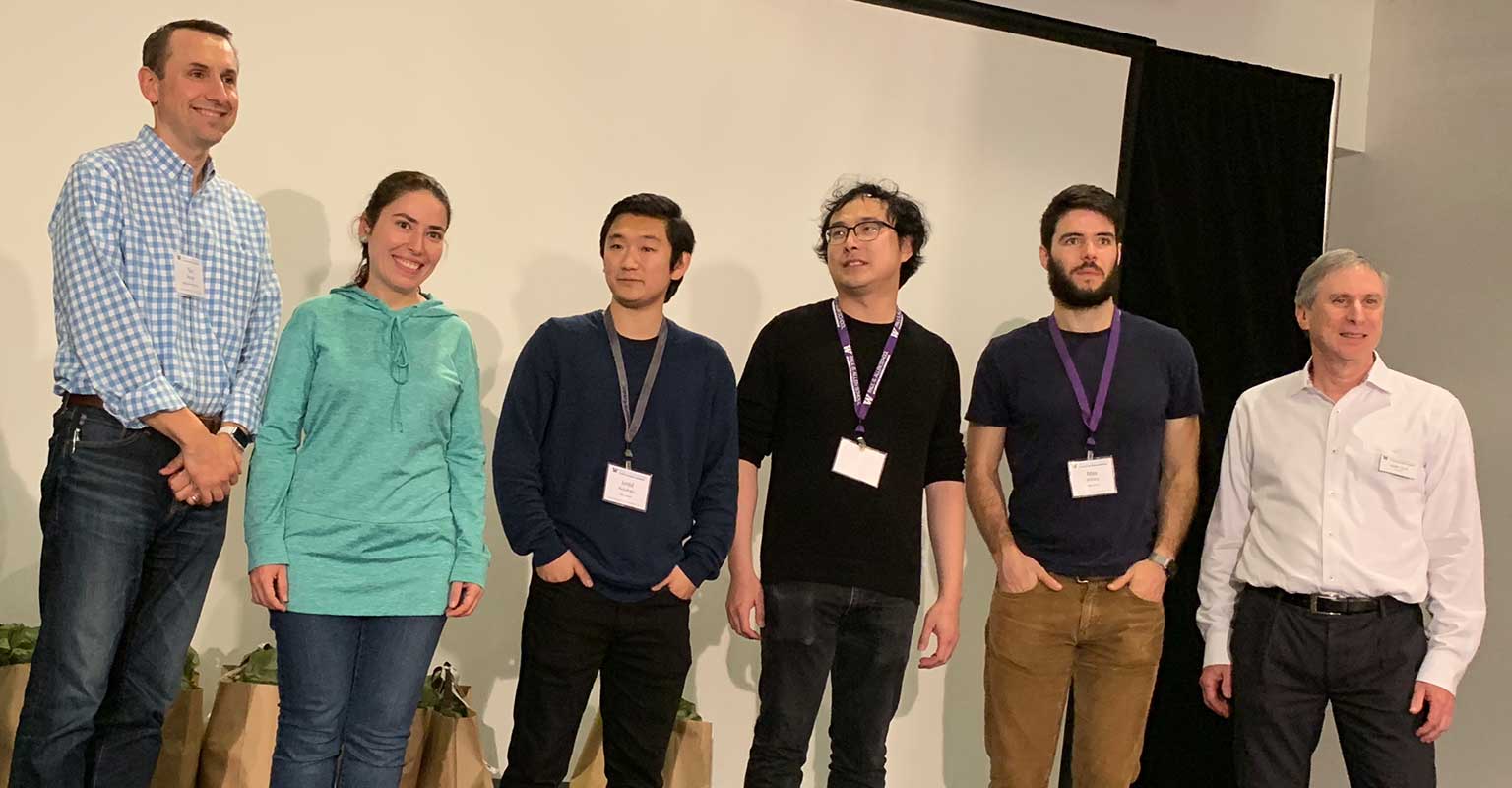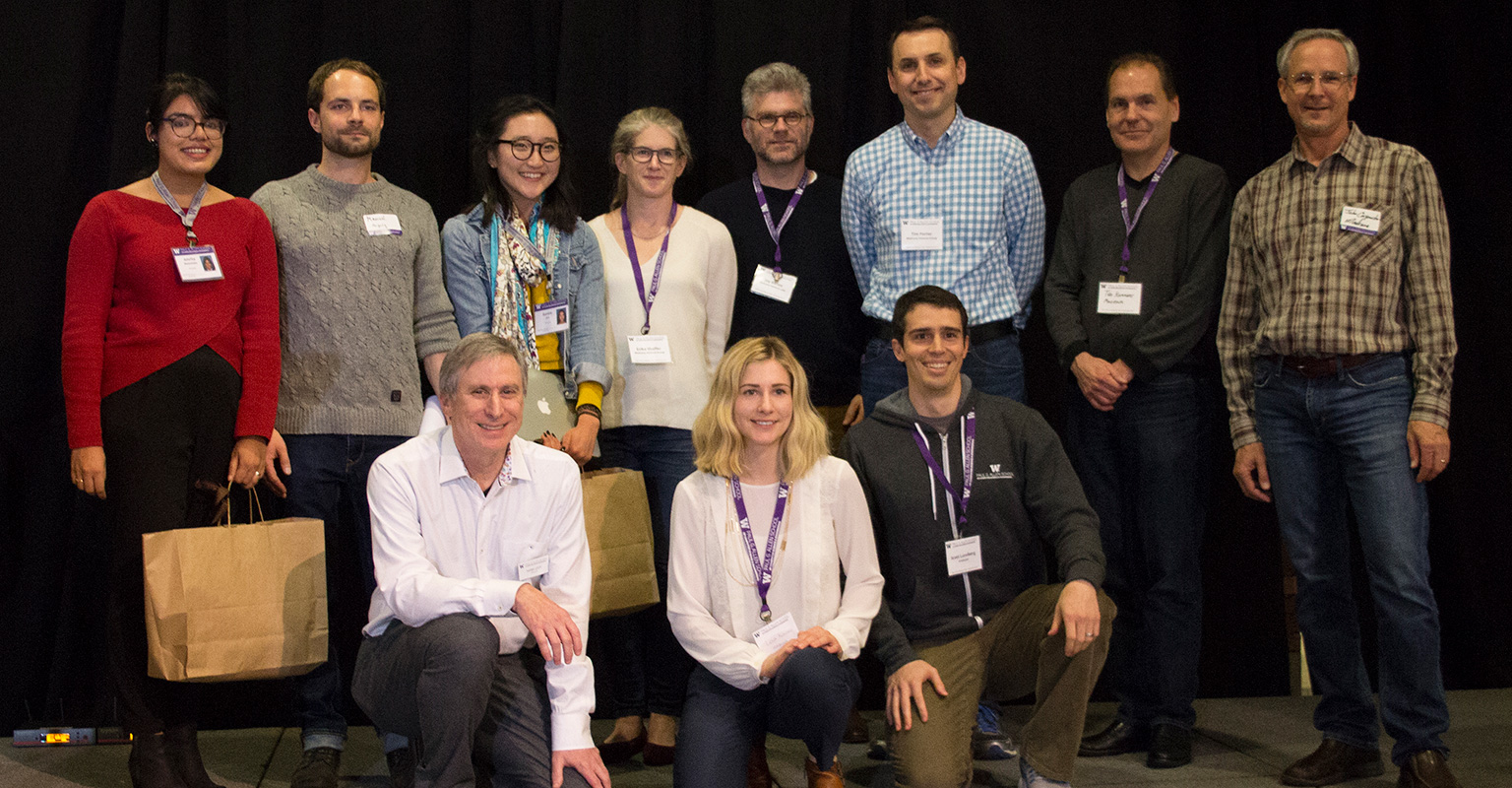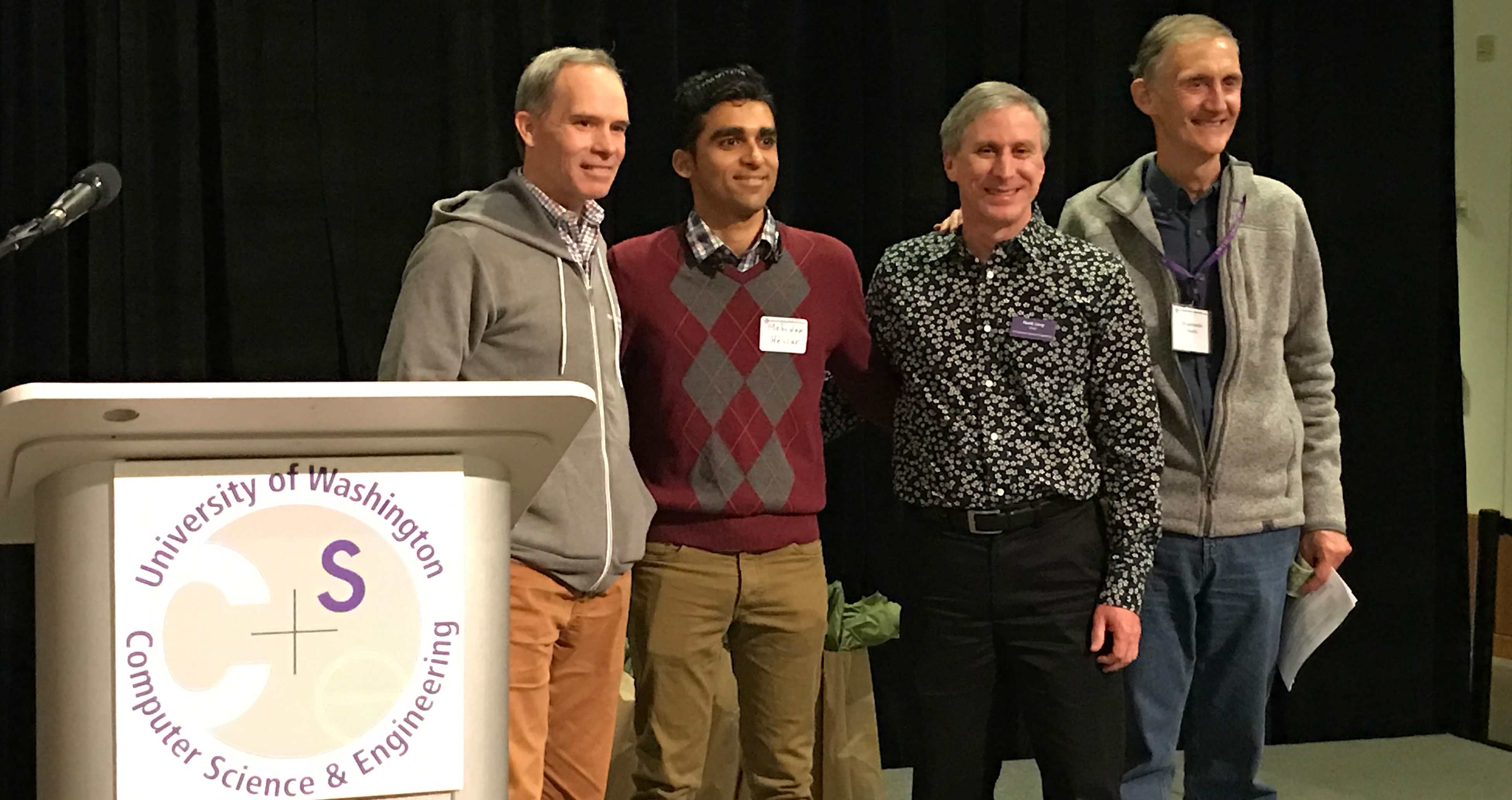Last night, a team from Madrona descended upon graduate and Ph.D. students at UW’s Paul G Allen School of Computer Science & Engineering to be inspired and possibly find the next big commercial success to come out of the UW. At the end of the evening, Madrona awarded the 15th Annual Madrona Prize to the team working on the VOCAL system. VOCAL (Video Organization and Interactive Compositional AnaLytics) system that enables users to extract semantic information from large quantities of unlabeled data without pre-trained models. VOCAL helps users organize their data, build domain-specific models as they go, and then search for interesting events. Ph.D. students Maureen Daum, Enhao Zhang, and Dong He worked together on the two VOCAL sub-projects that received the prize: Video Organization and Exploration and video search technology called Interactive Video Analytics for Compositional Queries. They were co-advised by Professor and Director Magda Balazinska and Professor Ranjay Krishna, and they also worked with a collaborator (and Allen School graduate) from Microsoft, Brandon Haynes.
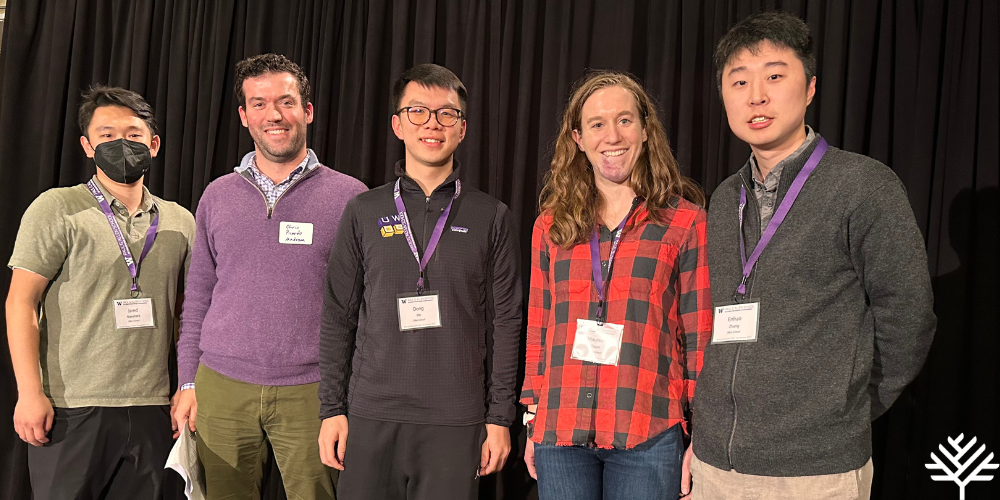
Madrona always awards the Madrona Prize at the end of the Allen School’s annual Industry Affiliates Research Day for projects that combine excellent research with strong commercial potential. Finding it very hard to choose, Madrona always selects several runners-up. In 2022 they are:
ClearBuds: Wireless Binaural Earbuds for Machine Learning Based Speech Enhancement
Hardware and software system for real-time speech enhancement. The ClearBuds neural network runs completely on an iPhone, suppressing unwanted noises to a far greater extent than the current state-of-the-art.
Ishan Chatterjee, Maruchi Kim, Vivek Jayaram More info
Advisers: Shyam Gollakota, Ira Kemelmacher-Shlizerman, Shwetak Patel, Steven M. Seitz
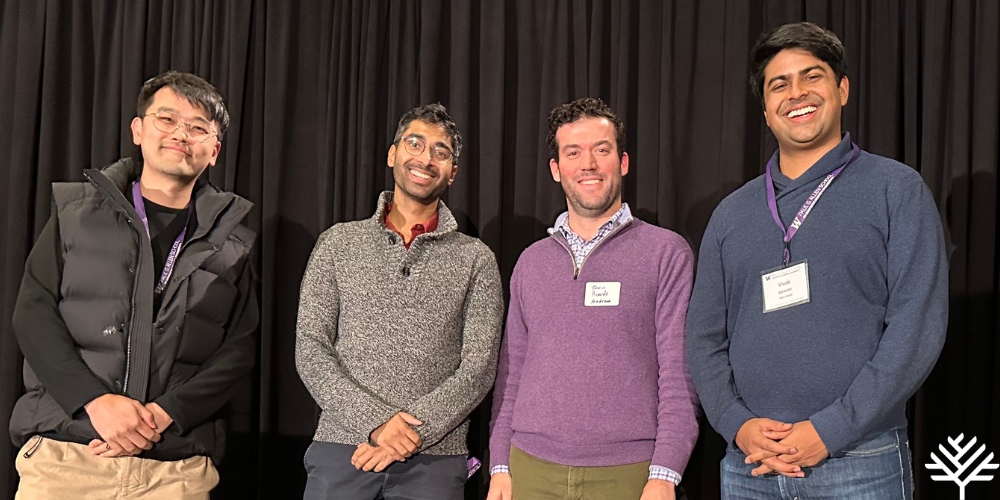
Data Analysis Systems for Statistical Non-Experts
Enable non-experts to generate accurate statistical models via an interactive no-code process.
Eunice Jun More info
Advisers: Jeffrey Heer and Rene Just
Levity: Contactless Robotics and Automation for Synthetic Biology
Suspend and manipulate millimeter-scale objects using ultrasonic levitation.
Jared Nakahara More info
Adviser: Joshua R. Smith
The Industry Affiliates event includes technical talks throughout the day and culminates in an open house and poster session to showcase the latest research projects and papers faculty and students are pursuing. Since Madrona’s inception more than two decades ago, Madrona has funded 21 companies out of the University of Washington. These companies include Impinj (NASDAQ: PI), SkyTap and Turi (acquired by Apple), and more recently, A-Alpha Bio, Modulus Therapeutics, and OctoML, a company based on the TVM research project that won a Madrona Prize in 2017 and has raised $132 million in venture capital.
The University of Washington and the Allen School specifically has grown to be not just a source of incredible innovation for our region but one of the top universities in the world. Being able to meet and talk to students who are passionate about their work and have put years into refining their innovations is inspiring. Awarding the Madrona Prize is something we look forward to every year and congrats to all the students who came to the event with their poster and their stories.
Just this past month, the University of Washington was named to the US New and World Report List of the Top Global Universities, ranking it 6th among names such as Harvard and Oxford.
Other Madrona colleagues who helped choose the Madrona Prize winners were Chris Picardo, who presented the awards to the winning teams, Erika Shaffer, Wei Gao, Sabrina Wu, Jon Turow, and Palak Goel. For past winners, visit: https://www.cs.washington.edu/industrial_affiliates/madrona

